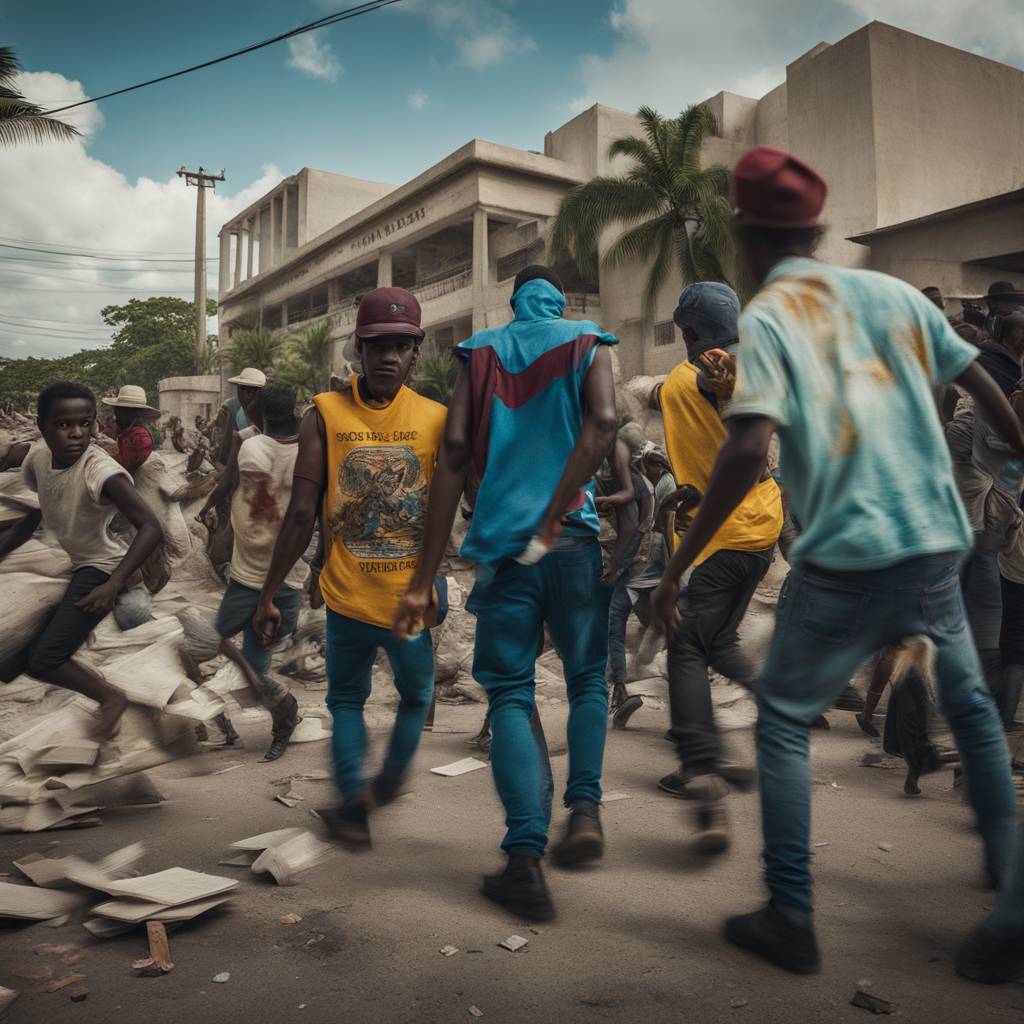Amid a surge of violence in Haiti, armed gangs looted the country’s national library in the capital city of Port-au-Prince, putting its rare and valuable documents at risk of damage or destruction. This comes after previous attacks on educational and artistic institutions in the area, prompting condemnation from organizations such as UNESCO. Former FBI agent Eric Jergenson stated that criminal gangs often carry out these attacks to intimidate and exert political influence. The United Nations reported that over 53,000 people have fled the capital within a short period to escape the violence, with many heading to the rural southern region.
The exodus from Port-au-Prince started after powerful gangs launched attacks on government institutions in late February, resulting in over 1,500 deaths and leaving 17,000 people homeless. Gangs have targeted police stations, the main international airport, and prisons, releasing thousands of inmates. Prime Minister Ariel Henry announced his resignation in response to the violence, and a transitional presidential council has yet to be established. Henry remains locked out of Haiti while seeking support for a U.N.-backed police force deployment from Kenya. The situation in Haiti has led to concerns about potential maritime mass migration, with the Pentagon being alerted to the escalating conflict.
The looting of the national library in Port-au-Prince has highlighted the continued insecurity and instability in Haiti, with criminal gangs posing a significant threat to the country’s institutions and population. The attacks on education and artistic institutions have raised concerns about the protection of Haiti’s cultural heritage and the impact on future generations. The United Nations has reported a significant increase in the number of people fleeing the capital to escape the violence, with many seeking refuge in the rural southern region. The violence and chaos in Haiti have led to a humanitarian crisis, with thousands of people displaced and in need of assistance.
The ongoing violence in Haiti has had devastating consequences, with thousands of people killed, injured, and displaced by the conflict. The looting of the national library is just one example of the destruction and loss caused by criminal gangs operating in the area. The lack of a functioning government and security forces has allowed gangs to take control and carry out attacks with impunity. The situation in Haiti has attracted international attention and concern, with calls for urgent action to address the root causes of the violence and instability. The transitional council, once established, will play a crucial role in choosing new leadership and restoring stability to the country.
The international community has a responsibility to support Haiti in its efforts to address the crisis and rebuild its institutions. The looting of the national library and other attacks on educational and artistic institutions are a stark reminder of the challenges facing Haiti and the urgent need for assistance. The United Nations, along with other organizations, is working to provide aid and support to those affected by the violence and displacement. The situation in Haiti remains precarious, with the potential for further escalation of violence and instability. It is essential for the international community to remain engaged and committed to helping Haiti recover and rebuild in the face of ongoing challenges.













